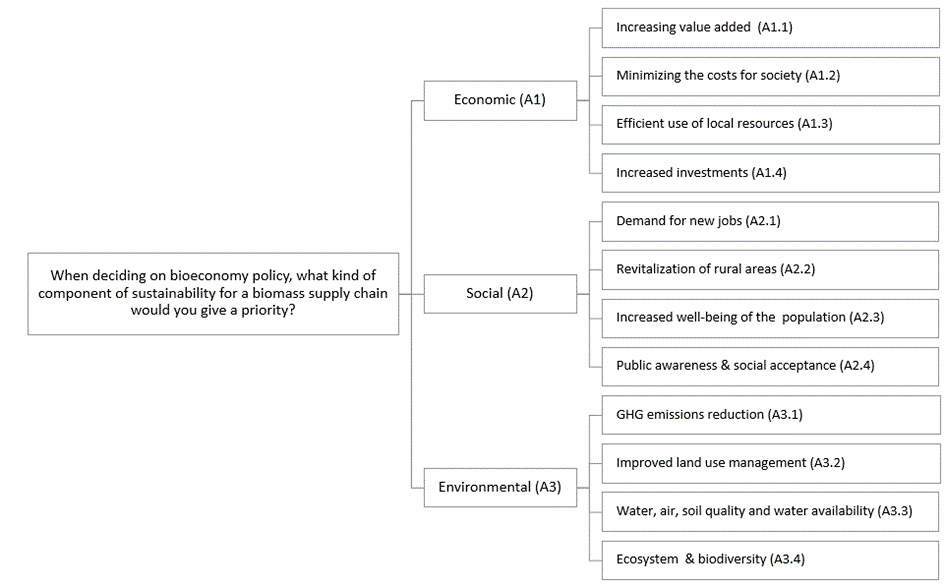New paper published in the Journal of Cleaner Production, based on a study carried out in the frame of IEA Bioenergy Task 43 (Biomass Supply).
The sustainability of biomass supply chains is a controversially debated topic, especially given their important role in the growing bioeconomy. The use of biomass, in its different forms, has impacts on different dimensions, from greenhouse gas (GHG) emissions reductions to impacts in the local economy, among others. Whereas there are several existing methodologies to evaluate the overall sustainability profile of biomass supply chains, those usually make use of criteria grouped in three main categories: economic, social and environmental, each one with additional sub-criteria. A crucial question, however, is to identify how important these criteria and sub-criteria are considered against each other.
This study aims to identify the criteria perceived to have the highest preference when evaluating the sustainability of biomass supply chains. The data includes the assessments of 122 international experts from 23 countries providing their evaluations through a questionnaire.

The criteria were weighted using the analytic hierarchy process (AHP) approach. For each expert, the relative priority of each criterion and sub-criterion was determined as a percentage. To combine all individual experts’ assessments, consensus regions (areas where answers from different experts coincide) were identified using kernel methods (Fig 2). By defining consensus regions rather than a single aggregated value, it is possible to better reflect the complexities of comparing diverse criteria while at the same time providing viable recommendations to policy makers. The responses showed that a large majority of experts belong to two distinct priority groups: an environmental oriented group (N = 78) and an economic oriented group (N = 21). The relatively lower rating of social criteria may be due to a lack of understanding of their long-term impacts or a lack of relevant literature on the topic, and it is possible that new social concerns will emerge in parallel with the development of the field.
Regardless of the estimated priorities of the main criteria, the experts agree that GHG emission reductions, efficient use of local resources, revitalizing rural areas and protecting ecosystems and biodiversity, among others, are the factors that deserve special attention when assessing the sustainability of biomass supply chains and should be particularly emphasized when planning biomass supply chains.
Source: www.ieabioenergy.com









